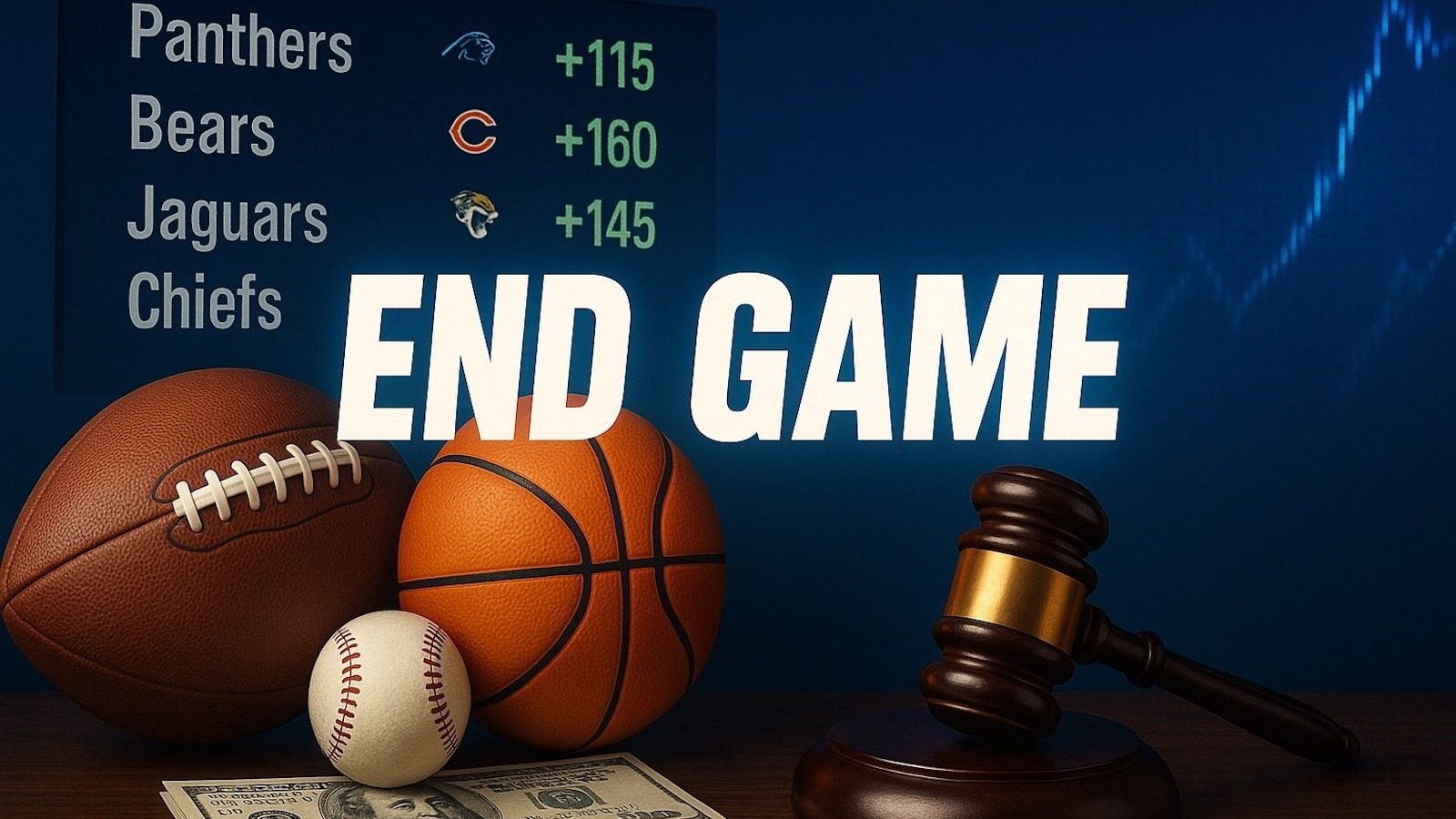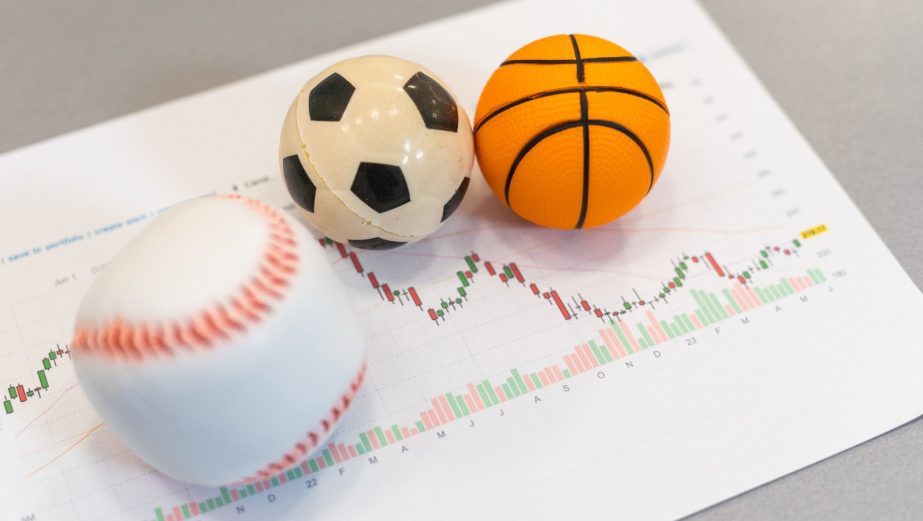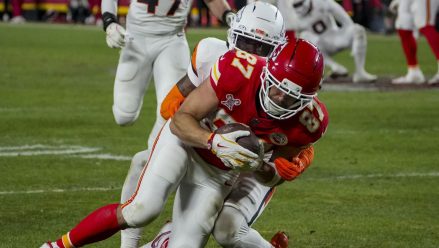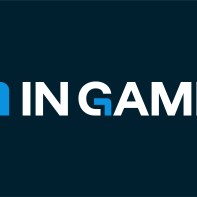The U.S. sports betting world moves quickly and unpredictably in 2025. In order to properly take stock of it all, we offer InGame’s “EndGame,” an end-of-week compilation of the top storylines, some overlooked items, and all the other news bits from this past week that we found interesting.
Massachusetts sues Kalshi in state court
The Massachusetts Attorney General is suing Kalshi in state court, calling for a judge to block the prediction market from “engaging in sports wagering without a license.”
State AG Andrea Joy Campbell submitted a complaint in the Suffolk County Superior Court, arguing that Kalshi’s sports event contracts are a form of sports betting.
MA-Kalshi-lawsuit“Kalshi has never sought approval or licensure from the MGC to engage in sports wagering,” the complaint says.
Other AGs have sent Kalshi cease-and-desist letters, which have led to three seperate courtroom battles between the prediction market and the states of New Jersey, Nevada, and Maryland. When those states have tried to enforce their cease-and-desists, Kalshi sued them in federal court. So far, Kalshi has not had to take down these markets in any state.
However, suing in state court and asking a judge to block sports event contracts within the state’s borders appears to be a new path for authorities, as they look for ways to enforce state gaming laws against Kalshi. The prediction market argues that the federal Commodity Exchange Act supersedes state law and that only the Commodity Futures Trading Commission (CFTC) has jurisdiction over its contracts.
Oops! Hornets right a misstep
Earlier this week, the Charlotte Hornets released plans for theme nights for the 2025-26 season, including a “sports betting night” March 17 against the Miami Heat. It was seen as especially problematic given that Heat guard Terry Rozier is under federal investigation for alleged gambling violations. According to a July ESPN report, a bettor placed 30 wagers on Rozier props in 46 minutes at a Mississippi sportsbook.
Per the South Florida Sun-Sentinel, the Hornets on Wednesday backed off the idea and removed sports betting night from its list of themes. There does not appear to be anything nefarious about either the scheduling of the event or its cancellation — maybe just poor judgment or bad timing.
The Hornets have had bet365 as a sports betting partner since November 2023.
Jill R. Dorson
ESPN Bet + ESPN DTC remarkably subtle
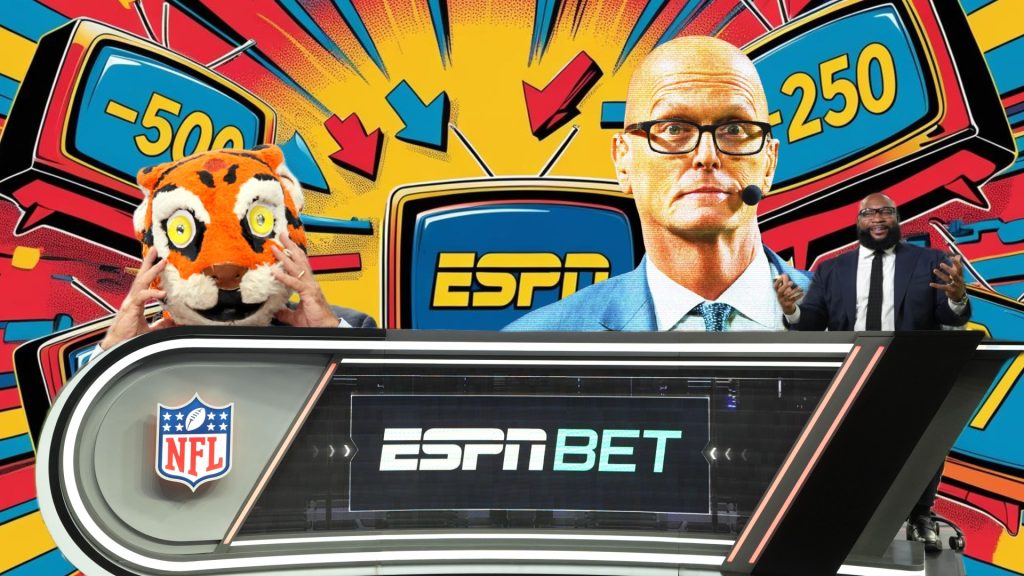
Those expecting a typical ESPN-style, over-the-top integration of ESPN Bet within the newly launched, much-ballyooed ESPN direct-to-customer app have been left surprised. (That’s me.)
Because there’s not a ton of it. I can verify that because I’ve watched the new platform — a ton of it — since it went live on Aug. 21.
Despite watching way more golf than I care to, I somehow still missed the integration that Penn Entertainment Chief Technology Officer Aaron LaBerge touted during the PGA TOUR Championship. Perhaps he had a hot tip where it would be. Perhaps I just dislike golf.
No actual on-screen bets were found in my living room in the broadcast interactive mode until the Monday Night Football opener between the Vikings and Bears. More are expected to eventually roll out for college football and other sports.
In summation: Props are stacked on the right side of the screen, scrollable with the television remote control. If they interested me, I could scan the QR code below them and the ESPN Bet app would pop up. It was initially surprising that those odds of interest had changed, but, then, not really because of latency issues with television broadcasts not endemic to phone signal.
Most of the viewing public will never see — read: be annoyed by — these prop bets because viewers must scroll over to the well-marked betting tab to see them.
That is a good idea. Those who want it can find it. Those who don’t can yell at their TV in peace.
Ghost recon works for DraftKings parlayers
More than 160,000 DraftKings bettors won “Ghost Leg” parlays in Week 1 of the NFL season. The promotion pays out the bet (at adjusted odds) if one — and only one — leg fails on a three-plus-leg parlay.
The promotion continues this week.
Kalshi, ‘NFL on Fox’ partner
Prediction market Kalshi, which continues to act very much like a sportsbook, Thursday announced a partnership with the NFL on Fox, the network’s pregame show featuring Tom Brady. In recent weeks, Kalshi has offered event contracts on everything from soybeans to sports to whether or not America will say aliens exist, but is not a state-licensed sportsbook. The platform is regulated by the CFTC.
Jill R. Dorson
G2E main stage: tribes, mental health
The main stage at the Global Gaming Expo at the Venetian Expo in Las Vegas is generally reserved for CEOs, celebrities, or the trendy new market-shaker. CEOs Bill Hornbuckle (MGM), Peter Jackson (Flutter), and Jason Robins (DraftKings) will be the headliners, but this year some new — and important — root-issue panelists will play the big room.
On Oct. 6 at 4 p.m., Indian Gaming Association (IGA) Chairman Ernie Stevens Jr. will open the main stage with a discussion of tribal operators’ contributions to the American gambling economy and what happens next. The panel will be moderated by IGA Executive Director Jason Giles and include Rodney Butler (chairman, Mashantucket Pequot Tribal Nation), and James Siva (chairman, California Nations Indian Gaming Association).
On Oct. 8 at 9 a.m., Global Gaming Women Sip & Social Chair Meghan Speranzo will moderate a panel with multi-sport athlete and mental health advocate Kendall Toole that is intended, according to a release, to “foster an open dialogue on mental health, designed to reframe how attendees think about wellness and inspire stronger voices across the gaming industry and beyond.”
AGA: Consumers see prediction markets as betting
The American Gaming Association (AGA), a trade group representing the regulated gambling industry in the U.S., on Wednesday released a study about prediction markets claiming that:
- 85% of the 2,025 surveyed between Aug. 1-8 by YouGov on behalf of the AGA said sports events contracts are a form of gambling;
- 6% believed they are a financial instrument;
- 70% said prediction platforms were skirting regulations to act as unregulated sportsbooks.
Circa Survivor pot: $18.7 million
The wildly popular Circa Survivor returned for a sixth year and set a record for entries and prize pool amount ($18.7 million). Eight winners split the $14,266,000 pot last year.
Circa has long been known as a whale sanctuary, and the Survivor contest upholds the tradition. The Circa Grandissimo, with entry fees at $100,000, drew 69 players.
Gonna Caesar on the game tonight?
A Seeking Alpha post last week mused how the era of companies being named after their founders is ending, partly to avert the risk of being associated with scandal — it mentioned former gambling tycoon Steve Wynn — and because companies want their name to become a verb.
Certainly, you’ve either Googled or Ubered lately. If you’re of a certain vintage, you probably even Xeroxed something once.
That got the InGame staff thinking.
High ground or missed opportunity?
Philadelphia sports had one of those weeks that underpins the reputation of Philadelphia sports.
In summation: Eagles defensive lineman Jalen Carter was ejected for a loogie attack on Cowboys quarterback Dak Prescott, and a Phillies fan attained social media infamy for browbeating a home run ball from a child via his father. It was tough to figure out which one was more cringey.
Amazingly, the rogues gallery of offshore sportsbooks and, increasingly, prediction markets that often peddle prop bets around these sort of sports/pop culture moments have stood down. Has a morality moment occurred?
Probably not, considering Kalshi still has eight markets regarding how many hurricanes will crash into the United States this summer and presumably, ya know, hurt people.
So not posting “Will Jalen Carter hock on another player this season?” or “Will Phillies Karen be seen on TV at another Phillies game?” or “Will Cruella Da Phil give the ball back?” seems like an odd whiff. Or maybe it’s progress.
Medical community to Canada: Try harder
The Canadian Medical Association (CMA) on Monday called out provincial governments in an editorial that calls for fewer wagering advertisements, criticizes the use of celebrities in responsible gambling advertising, and suggests that there is a conflict of interest for provincial regulators given the amount of tax revenue that legal gambling produces.
In particular, the CMA wrote in an editorial that even though the Ontario regulator banned the used of celebrities and athletes in most gambling advertising, operators “sidestepped” the ban by using recognizable people in responsible gambling ads.
“Warnings to game responsibly have, however, been shown in a systematic review of 166 studies to be ineffective, which highlights the weak efforts of provincial governments who stand to make substantial revenue from iGaming (Ontario’s open single-game industry produced a total tax revenue of more than $1.4 billion during its first 3 years),” doctors Shannon Charlebois and Shawn Kelly wrote.
There is legislation pending in Parliament that could further limit or ban the use of celebrities and limit or prohibit ads from being during certain times or in certain locations. The bill sponsor, Sen. Marty Deacon, is hoping it moves forward when Parliament returns to session in October.
Jill R. Dorson
Breaking stigmas to clear pathway for help
Playing off what are called “safety stand-downs,” Kindbridge Research Institute on Monday announced its latest program targeted at helping service members struggling with gambling issues. Stigma Stand Down launched in Colorado and is “dedicated to confronting stigma, breaking down barriers, and fostering resilience among active-duty service members, veterans, and their families impacted by mental health and gambling-related challenges.”
Per a Kindbridge press release, those in the military are 3.5 times more likely to develop a gambling addiction than civilians, and the stigma attached to admitting and managing addiction often prevents those in need from seeking help. Education, mental health support, outreach, and self-assessment tools are part of the program.
“Stigma is a silent enemy that leaves our service members and veterans isolated, harming their families, units, and mission readiness,” Mark Lucia, director of programming at Kindbridge Research Institute, said via press release. “Stigma Stand Down is our frontline response: dismantling shame and delivering free, confidential, evidence-based care designed for military realities. We thank our partners for standing with us and call on more allies to help transform lives and build stronger communities.”
Jill R. Dorson
Odds and ends
- According to a Wednesday report by ESPN, the NBA is in the final stages of investigating gambling allegations leveled against free agent Malik Beasley. Federal prosecutors have already concluded their probe with no charges filed.
- Poly-wanna market? Polymarket CEO Shayne Coplan trumpeted his company’s “green light” to launch in the United States 10 days ago. It hasn’t happened yet. Americans on the Polymarket wait list are greeting by an effectual “coming soon” sign when punching up the URL. Those among us are supposed to receive a text message when the proverbial hounds are released.
- Another cruise line has added retail sports betting. MSC, the world’s largest privately held line with departures from South Florida, Texas, and New York City, announced that Playtech will install retail sportsbooks on every liner. The partnership does not currently entail mobile wagering like on Carnival Cruise Line, Holland America Line, and Princess Cruises.
- Ubiquitous handicapper Gary Greene has joined sports betting data, odds comparison, and fantasy hub Atlas World Sports as an NFL and college football ambassador and lead betting analyst. Greene is best known as the publisher of the Bluebook Football Betting Magazine and host of the Las Vegas’ longest-running sports radio show.
- Internet Sports International (ISI) announced Thursday that it has added new wagering kiosks at Mississippi’s Magnolia Bluffs Casino.
Check it out …
Kalshi has positioned itself as a “peer-to-peer” prediction market. Simple definition? I buy one side of a contract (or bet) and you buy the other. We’re not not playing against the house. But Kalshi does contract with market makers — major corporations that can afford to buy up many positions in many markets. Sportico‘s Dan Bernstein and Eben Novy-Williams do a great job explaining what market makers do and why you might being playing against the house on Kalshi after all.
ICYMI on InGame
Kalshi-NJ Judge: Congress Defines CFTC Swaps Broadly — It’s Not Our Job To Fix It
CFTC Nominee Quintenz Makes Bold Move, Reveals Signal Messages With Winklevoss Twins
Dear Polymarket: Take Down Your Civil War Market Before Another Person Dies
States Rights Vs. Federalism: Can Prediction Markets Be Kept At Bay?
New Study Challenges Common Negative Sports Betting Narrative
Legal Sports Betting A Done Deal In Minnesota? Yes, But … No

